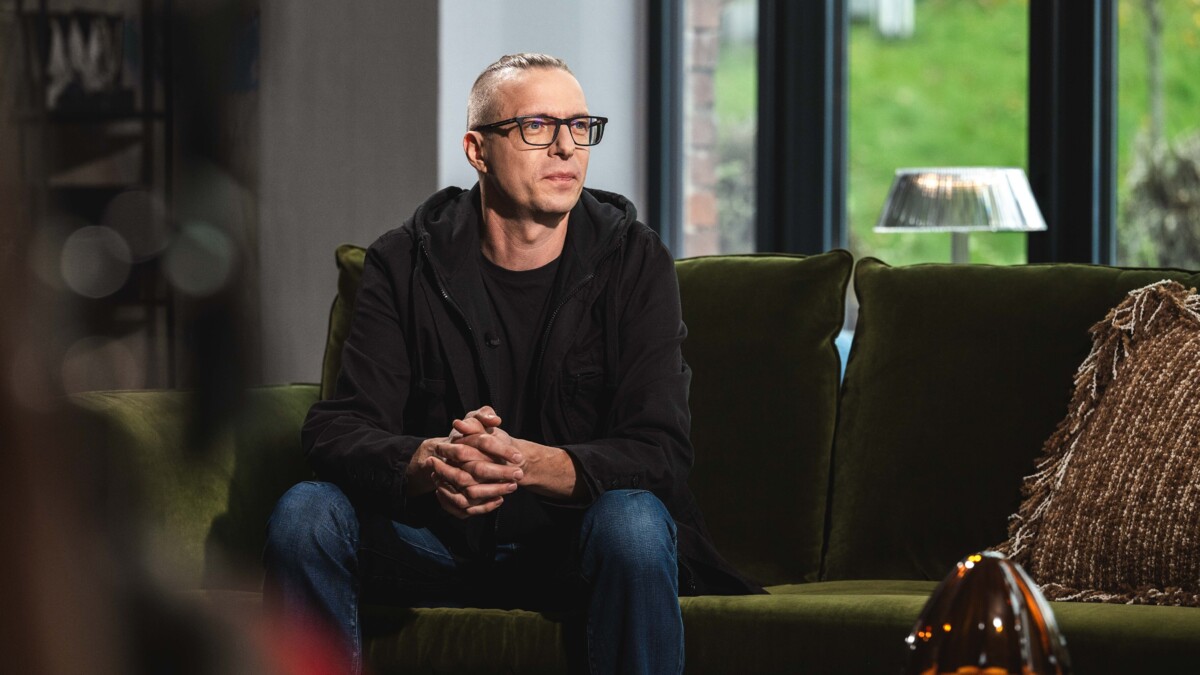[pp. 7–9]
A Mobile Mind
Each of us contains a tiny inheritance that only those belonging to a family can appreciate. We all have a history. We all come from somewhere, carry something within, and remember something, even if we don’t really want to sometimes. Towering in the corner of a living room is an old grandfather clock that somberly counts the minutes and strikes the hours as if to say: this hour is hereby up—how did you use it? Huh? Some homes have gilded-framed mirrors in which you can only discern your reflection by memory. A classmate of mine had a parlor organ. When you pumped the instrument, it produced sounds that came not just from beyond the ages, but from the afterlife. We shivered in horror but couldn’t make ourselves stop until the old neighbor downstairs started banging a broom against his ceiling.
My own family’s ancestral relics included a saying that my mother carried.
“Our family has never had cheats, crazies, or smokers!”
They were three steadfast facts, a trio of whales that our world stood upon and on which my mother could lean whenever she began losing her balance and everything turned dim. They were for moments when she needed to say something irrefutable; when she was possessed by a great, powerful intuition that the truth was on her side but arguments were running out. Whenever a dispute veered towards the unclear and ridiculous, you could expect her to play that card and end the whole debate. None of us disputed the saying. Not I, my sister, or my father, because suspicion would otherwise fall upon us and none of us wanted to be a cheat, a crazy, or a smoker. Who would?
No one remembered who had said it first. Had it been our city grandma who’d heard it from her mother, who’d heard it from her mother in turn? Had the saying been modulated and adapted throughout history according to need? As children, lots remained puzzling and obscure in the haze of Soviet society. My sister Kerli and I couldn’t necessarily fathom the world with all its complications and contradictions, but that saying was something we knew for certain. When Dad returned home after a weekend visiting our country grandmother, he brought back fleas and a heavy, agitated air. All kinds of nasty comments began hopping around the apartment with those tiny parasites. The kitchen door was closed but words still penetrated the wood. Occasionally, it’s necessary to raise one’s voice to make it clear how those bad habits and weak genes find their way into a family. And ultimately, that saying shot from Mom’s mouth. Fleas were the least of our worries by the time the evening ended. They remained background dancers but did make their presence known by chewing us red and spotted. Kerli and I were covered in blisters for weeks, not daring to get undressed before PE class. Were the fleas trying to tell us something? That if you humans aren’t even capable of handling us, then how do you expect to communicate with your own nervous system, brain, and emotions? Are you really so sure you don’t want to be fleas yourself? Things would be much easier. Maybe you want to cross over?
Once, I came across an open pack of cigarettes in the middle of the sidewalk. Heart pounding in my chest, I looked in every direction, I don’t think anybody can see, I don’t think anybody did. I picked it up, shoved it into my pants pocket, and walked home as if I were carrying a scalp as a war trophy. On the one hand, the sensation was tremendous and triumphant: nobody I passed had any idea what was in my pocket! But at the same time, I imagined a human scalp to be sort of bloody, hairy, and wrinkled—just as revolting as a pack of cigarettes. I showed it to Kerli. A spectrum of emotions coursed through her as well, though she didn’t dare to touch it. I tried to light one between the garages of the neighboring building, but failed. Neither of us took a single puff in the end. After extensive consideration and debate, we decided to bury the pack in the community gardens. Carrying an aluminum soup spoon, we crept outside at twilight, dug a little hole between stalks of dill, poked the pack into the dirt, then covered it up and ran home. For ages, I was terrified that the cigarettes would sprout and grow and someday catch me!
Several days later, I found myself unable to explain to Dad why there was a dirty soup spoon in my jacket pocket. And as always when Dad didn’t know what to do, he called Mom over, because she knew everything, including the way to ask and how to perform an interrogation. Kerli couldn’t stand it and finally blurted everything out:
“It was all Tom’s fault…”
[pp. 56–60]
Viktor didn’t give up or withdraw so easily, of course. He’d go to Mom’s school at the end of the day, stuff her pockets full of pastries, smile, and say nothing. He did, however, have much to say to Grandma Lydia when he showed up at the university’s chemistry warehouse where she worked. Holding a zephyr cake, he started by apologizing.
“Yes, I was despicable, but it all happened because you’re so precious to me. So precious…”
But Grandma had already made her decision, and that’s what she told him.
“Just let it go, let’s not do this anymore, it’s all over now and…”
Viktor patiently nodded along as if she were someone who shouldn’t be provoked, but simply allowed to speak, all while mulling his own thoughts and searching for any opportunity to knock some sense into his beloved. Because sooner or later, Lydia will track me down and beg me to come back. And I’ll say yes, Viktor mused before communicating this thought to Grandma.
“I’ll wait for you.”
The show of nobleness and generosity only exasperated Grandma.
“What’re you going to wait for!?”
“For you!”
Viktor spread his arms, baffled by why he wasn’t being allowed another chance—you have one tiny disagreement and all of a sudden, that’s it! Over!
“Wait as long as you want!”
Grandma began retreating into the maze of shelves. Viktor realized that if he followed her now, then he’d end up seizing his beloved and the same thing that happened the other dreadful night in her tiny one-room apartment would repeat, but this time, she’d no doubt grab a bottle of acid from one of the shelves and smash it over his head! So, Viktor only shouted after her.
“I won’t have to wait very long, you know!”
A sour smirk spread at the corner of his lips and a moment later, he realized all too palpably that what he said shouldn’t have been spoken—it was a thought that he could’ve kept to himself, though thoughts like those tend to force their own way out of your mouth! Where it came from, Viktor couldn’t say. He was quite capable of communicating and handling everyday affairs, but whenever a most precious and important thing was on the line, he simply couldn’t manage, stuttered, lost his nerve, sweat beaded on his forehead, the wrong words and sentences escaped his lips, and it all melted into a mess like a zephyr cake that a factory worker had stolen the sugar from once again! He’d purloined sugar for himself, too, and had even given a couple sacks to Lydia, though he certainly didn’t call it stealing—no, those were tiny victories that are good to take out on rainy days. But why was he thinking about sugar, and why was his mind fishtailing right when he was standing face-to-face with his fate? Who’s doing this to me?
“What?! What did you say!?” Grandma demanded angrily. She knew exactly what he was implying, of course, but wanted him to state it clearly. And Viktor did, though later, time and again, he had to admit it would’ve been best to stay silent.
“He doesn’t have many more days to live, you know.”
Could we come up with a means of communication to use instead of talking? So many fiascos would be avoided. Viktor’s life would have been immensely easier today—he’d have tapped a dozen different emoticons, even five would be enough, all that mattered was like, like, like! But back then, he was forced to search for the words when Grandma demanded them.
“What business is it of yours, how much time he has left to live?”
“What’s the point of living with someone who’s going to die any day now?”
“We all die someday.”
“Yes, but is there any point…”
Viktor had no idea where the line of thought was going and trailed off, but then, some devil forced him to open his mouth again.
“Is there any point in being with him for such a fleeting moment when you could be with me till the end of your life…”
Ugh.
“Don’t go flaunting your longevity to me! Are you so sure it’s worth more than his fleeting moment?” Grandma retorted.
Viktor increasingly resembled a deflating zephyr cake.
“My life?” he mumbled. Inflation was so limitless! Just this morning, he’d dressed, combed his hair, picked up the cake, and now? Viktor tried to scrape himself together.
“Lydia, I don’t want him to die. Trust me—I want you!”
“Well, that’s something. Otherwise you’d just be a murderer.”
“No, definitely, I’m not, I… And I’ll wait for you. Soon, when he’s gone, come and find me, I’ll still be here.” Even the cake was a much stouter and worthier chunk of matter than what remained of Viktor. Grandma started to pity the man and ushered him out the door like a child.
“Viktor, you don’t need to wait. Don’t come back here.”
It would have been a long wait, indeed, as Grandpa lived another thirty years. He cleaned himself up in the sauna, shaved, dressed in clothes that Great Uncle Heimar provided, left his tattered coat (from the pockets of which Grandma would find loose tobacco years later) hanging on the sauna chimney, and moved into the apartment. That day, Hugo was the only one who sampled Viktor’s cake, and he complimented it.
“Anything thicker than boiled water’s as good as a stew! And every new day you’re given comes extra!”
Did Viktor really make his exit, come to terms with his fate, and leave my grandma alone? Or did he contact her over and over again, falling to his knees, weeping and begging, promising her the earth and the sky? Did he plot his revenge, attempting to accelerate Grandpa’s death, and mix arsenic into the bread dough, hoping that one of the loaves would find its way to Hugo’s table? Did he at least fling a fist-sized cobblestone through Grandma’s window one night? Put a curse on the tiny room he’d been staying in just a handful of nights ago? Who knows, who knows! Or maybe he did find someone else with whom he could eat cake and share his life! And if he did, then was it the love of his life, or did Viktor still think about his Lydia while lying next to her, suffering in silence, growing bitter and spiteful and criticizing his wife for not being Lydia?
We know so very little of bakers’ tribulations, or even of the tribulations of those with whom we aren’t familiar but are still invisible characters in our daily lives. Mailmen, bakers, bus drivers, salesclerks, custodians. The tragedy of poets and composers, their fates and melancholy, reach us through their works. But perhaps we perceive the sadness and rage of those strangers in some inexplicable way, too. We exit the grocery store, encountering a life-wearied cashier at the register, walk home with shopping bags hanging at both sides, pull out a package of butter and a carton of milk, set them on the counter, and out of nowhere, not understanding why, we burst into uncontrollable tears and wrap ourselves around the leg of the dining table in the fetal position. Or we’re at the repair shop with all its gross, greasy, mustachioed men who hate their job and our car, wanting to sink their teeth into the whole world, and a short time later, we’re driving home, summer tires on the road, studded tires in the trunk, and halfway there we start cursing and yelling behind the wheel, roll down the window, and let everybody have it! Energies travel and just as ingredients are listed on food packaging—sugars, fats, proteins, carbohydrates—it might’ve been honest to put a warning on Viktor’s baked goods: consume this bread at your own risk, as it was baked by a balding fifty-three-year-old bachelor who gravitates towards obesity and melancholy and might bite his glass and chew it to bits because he can’t take this loneliness anymore!
Translated by Adam Cullen
Urmas Vadi (b. 1977) is an Estonian writer, journalist, scriptwriter, and director. He entered dramaturgy writing children’s plays, the first professional production of which was The Flying Ship at Vanemuine Theater in 2000. Since then, countless others have been performed. In 2004, Vadi made his directing debut with the play Let’s Meet in the Trumpet at VAT Theater. He has written nearly two dozen books and received numerous awards. Vadi’s latest novel, The Far Side of the Moon (2024), received the prestigious Vilde Award for Literature and was nominated for the Cultural Endowment of Estonia’s Award for Literature.
Urmas Vadi
The Far Side of the Moon
Kolm Tarka, 2023, 384 pp.
ISBN 9789916420027




